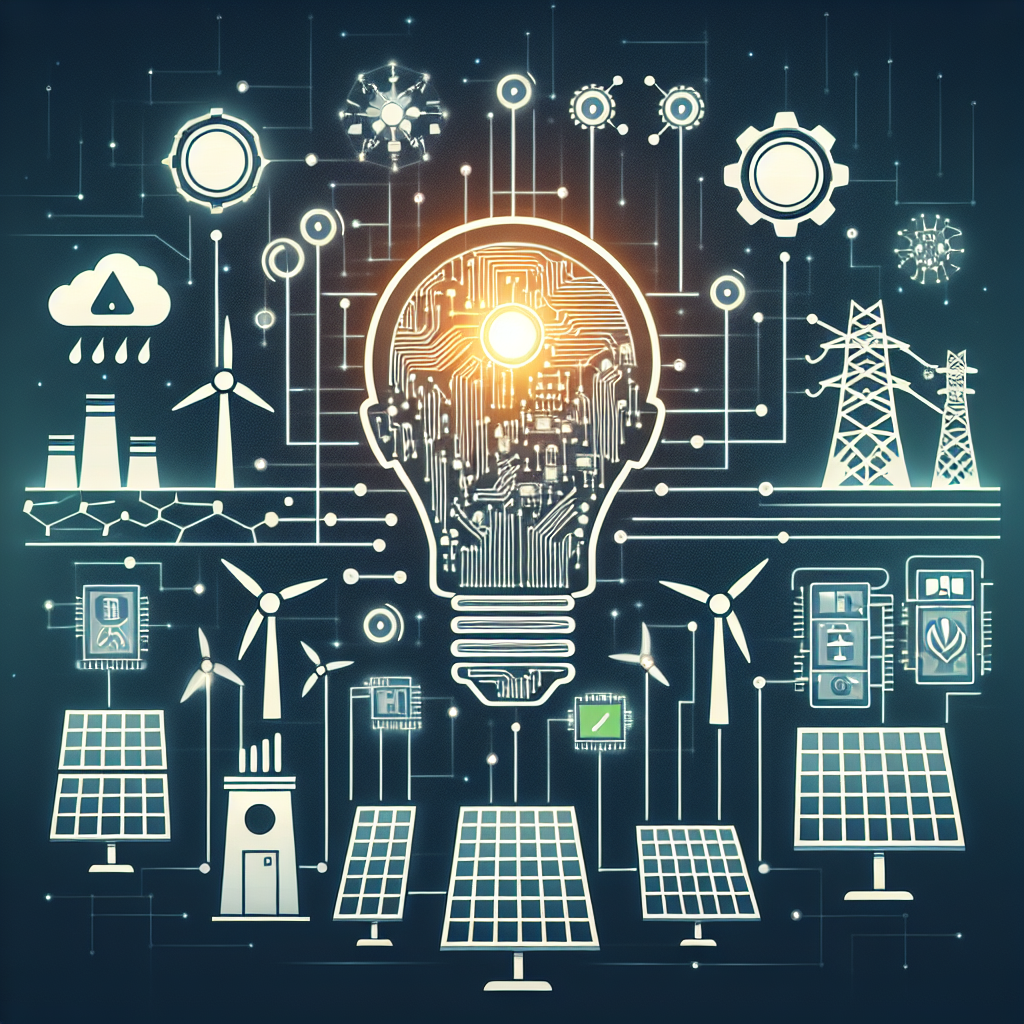AI-Based Energy Management in Renewable Systems
Introduction
With the increasing demand for renewable energy sources, AI-based energy management systems are becoming more prevalent in the renewable energy sector. These systems use artificial intelligence (AI) algorithms to optimize the generation, storage, and consumption of energy in renewable systems such as solar panels, wind turbines, and battery storage units.
AI-based energy management systems have the potential to improve the efficiency and reliability of renewable energy systems, leading to cost savings and reduced carbon emissions. This article will explore the benefits of AI-based energy management in renewable systems, as well as some common FAQs about these systems.
Benefits of AI-Based Energy Management in Renewable Systems
1. Improved Energy Efficiency
One of the key benefits of AI-based energy management systems is improved energy efficiency. These systems use AI algorithms to analyze data from renewable energy sources and optimize the generation, storage, and consumption of energy. This can lead to more efficient use of energy, reducing waste and increasing overall system efficiency.
2. Enhanced Reliability
AI-based energy management systems can also improve the reliability of renewable energy systems. By using AI algorithms to predict energy demand and optimize energy generation and storage, these systems can help ensure a stable and reliable energy supply. This can be particularly important in areas with variable weather conditions, where renewable energy generation can fluctuate.
3. Cost Savings
AI-based energy management systems can help reduce operating costs for renewable energy systems. By optimizing energy generation and storage, these systems can help reduce the need for expensive backup power sources and minimize energy waste. This can lead to cost savings for renewable energy system owners and operators.
4. Reduced Carbon Emissions
By improving the efficiency and reliability of renewable energy systems, AI-based energy management systems can help reduce carbon emissions. By optimizing energy generation and storage, these systems can help maximize the use of renewable energy sources and minimize the need for fossil fuel-based power generation. This can help combat climate change and reduce the environmental impact of energy production.
FAQs about AI-Based Energy Management in Renewable Systems
Q: How does AI-based energy management work in renewable systems?
A: AI-based energy management systems use artificial intelligence algorithms to analyze data from renewable energy sources, such as solar panels, wind turbines, and battery storage units. These algorithms can predict energy demand, optimize energy generation and storage, and make real-time adjustments to ensure a stable and reliable energy supply.
Q: What are some common applications of AI-based energy management in renewable systems?
A: Some common applications of AI-based energy management in renewable systems include optimizing energy generation from solar panels and wind turbines, managing battery storage systems to store excess energy for later use, and forecasting energy demand to ensure a stable and reliable energy supply.
Q: How can AI-based energy management systems benefit renewable energy system owners and operators?
A: AI-based energy management systems can benefit renewable energy system owners and operators by improving energy efficiency, enhancing reliability, reducing operating costs, and minimizing carbon emissions. These systems can help maximize the use of renewable energy sources and optimize energy generation and storage to ensure a stable and reliable energy supply.
Q: Are AI-based energy management systems expensive to implement?
A: While the initial cost of implementing AI-based energy management systems can vary depending on the size and complexity of the renewable energy system, the long-term benefits of these systems often outweigh the upfront costs. By improving energy efficiency, enhancing reliability, and reducing operating costs, AI-based energy management systems can help generate cost savings over time.
Q: What are some challenges associated with AI-based energy management in renewable systems?
A: Some challenges associated with AI-based energy management in renewable systems include data privacy and security concerns, the need for accurate and reliable data to train AI algorithms, and the potential for algorithm biases. It is important for renewable energy system owners and operators to address these challenges and work with experienced AI professionals to implement effective energy management systems.
Conclusion
AI-based energy management systems have the potential to revolutionize the renewable energy sector by improving energy efficiency, enhancing reliability, reducing operating costs, and minimizing carbon emissions. By using artificial intelligence algorithms to optimize energy generation, storage, and consumption, these systems can help maximize the use of renewable energy sources and ensure a stable and reliable energy supply. As the demand for renewable energy continues to grow, AI-based energy management systems will play an increasingly important role in the transition to a more sustainable energy future.

